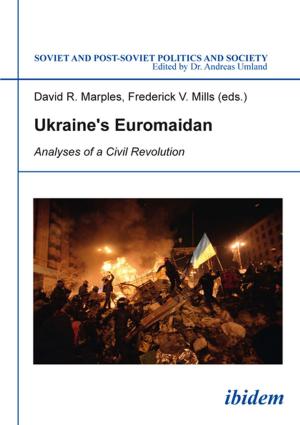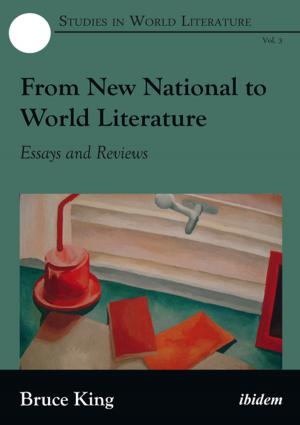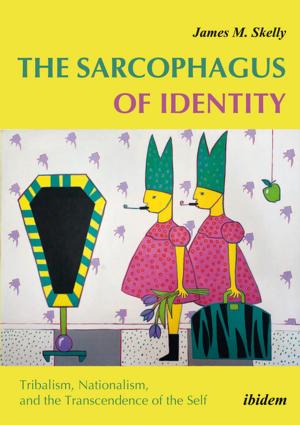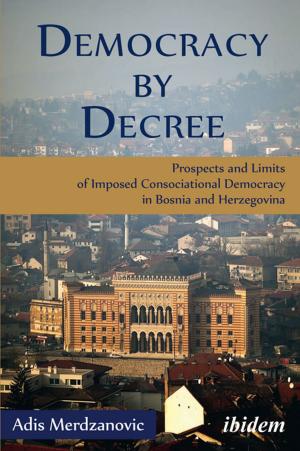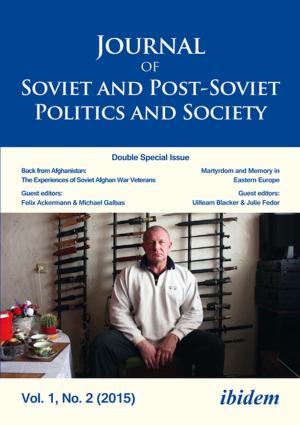Language Conflicts in Contemporary Estonia, Latvia, and Ukraine
A Comparative Exploration of Discourses in Post-Soviet Russian-Language Digital Media
Nonfiction, Reference & Language, Language Arts, Communication| Author: | Ksenia Maksimovtsova | ISBN: | 9783838272825 |
| Publisher: | Ibidem Press | Publication: | May 28, 2019 |
| Imprint: | Ibidem Press | Language: | English |
| Author: | Ksenia Maksimovtsova |
| ISBN: | 9783838272825 |
| Publisher: | Ibidem Press |
| Publication: | May 28, 2019 |
| Imprint: | Ibidem Press |
| Language: | English |
Language policy and usage in the postcommunist region have continually attracted wide political, media, and expert attention since the disintegration of the USSR in 1991. How are these issues politicized in contemporary Estonia, Latvia, and Ukraine? This study presents a cross-cultural qualitative and quantitative analysis of publications in leading Russian-language blogs and news websites of these three post-Soviet states during the period of 2004–2017.
The most notable difference observed between Ukraine and the two Baltic countries is that many Russian-writing users in Ukraine’s internet tend to support the position that the state language, i.e. Ukrainian, is discriminated against and needs special protection by the state, whereas the majority of the Russian-speaking commentators on selected Estonian and Latvian news websites advocate for introducing Russian as a second state language. Despite attempts of Ukraine’s government to Ukrainize public space, the position of Ukrainian is still perceived, even by many Russian-writing commentators and bloggers, as being ‘precarious’ and ‘vulnerable.’ This became especially visible in debates after the Revolution of Dignity, when the number of supporters of the introduction of Russian as second state language significantly decreased. In the Russian-language sector of Estonian and Latvian news websites and blogs, in contrast, the majority of online users continually reproduce the image of ‘victims’ of nation-building. They often claim that their political, as well as economic rights, are significantly limited in comparison to ethnic Estonians and Latvians.
The results of Maksimovtsova’s research illustrate that, notwithstanding differences between the Estonian as well as Latvian cases, on the one hand, and Ukraine, on the other, there is an ongoing process of convergence of debates in Ukraine to those held in the other two countries analyzed in terms of an increased degree of ‘discursive decommunization’ and ‘derussification.’
Language policy and usage in the postcommunist region have continually attracted wide political, media, and expert attention since the disintegration of the USSR in 1991. How are these issues politicized in contemporary Estonia, Latvia, and Ukraine? This study presents a cross-cultural qualitative and quantitative analysis of publications in leading Russian-language blogs and news websites of these three post-Soviet states during the period of 2004–2017.
The most notable difference observed between Ukraine and the two Baltic countries is that many Russian-writing users in Ukraine’s internet tend to support the position that the state language, i.e. Ukrainian, is discriminated against and needs special protection by the state, whereas the majority of the Russian-speaking commentators on selected Estonian and Latvian news websites advocate for introducing Russian as a second state language. Despite attempts of Ukraine’s government to Ukrainize public space, the position of Ukrainian is still perceived, even by many Russian-writing commentators and bloggers, as being ‘precarious’ and ‘vulnerable.’ This became especially visible in debates after the Revolution of Dignity, when the number of supporters of the introduction of Russian as second state language significantly decreased. In the Russian-language sector of Estonian and Latvian news websites and blogs, in contrast, the majority of online users continually reproduce the image of ‘victims’ of nation-building. They often claim that their political, as well as economic rights, are significantly limited in comparison to ethnic Estonians and Latvians.
The results of Maksimovtsova’s research illustrate that, notwithstanding differences between the Estonian as well as Latvian cases, on the one hand, and Ukraine, on the other, there is an ongoing process of convergence of debates in Ukraine to those held in the other two countries analyzed in terms of an increased degree of ‘discursive decommunization’ and ‘derussification.’


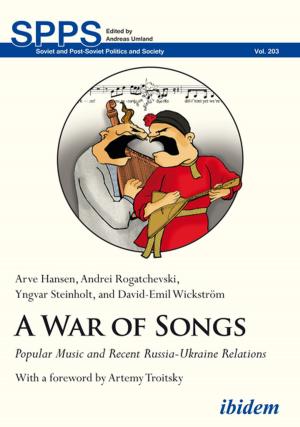
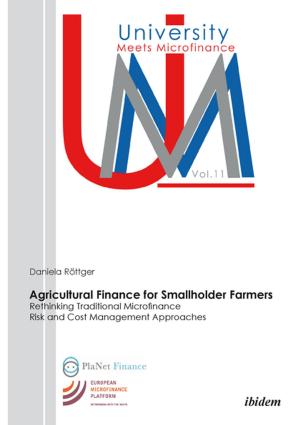




![Cover of the book [T]axing Greenhouse Gases by Ksenia Maksimovtsova](https://www.kuoky.com/images/2019/april/300x300/9783838272542-ezd6_300x.jpg)
